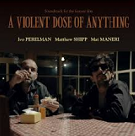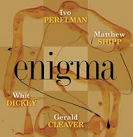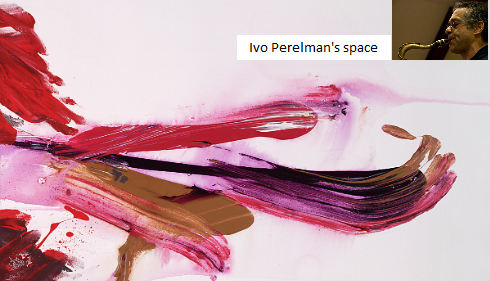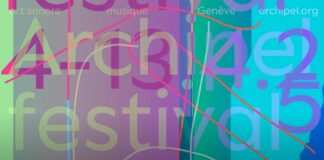-A violent dose of anything – Perelman/Shipp/Maneri
 Brasilia, the current capital of Brazil, is a place that has experienced unprecedented growth over the past three decades, thanks to a government project that wanted to build a super-city modeled according to the most innovative architectural theories focusing on modernity and design of buildings and a well-specified type of urban plan drawn up by the architect Niemeyer (one of the best students of Le Corbusier): this beautiful fairy tale, defined through the eyes of a non-resident seems to produce wealth and prosperity (Brasilia has entered the UNESCO world heritage site), but it is totally demolished by the prospectic view of the Brazilian director Gustavo Galvao in the film finished in April last year, “A violent dose of anything“. Through the story of Pedro and Lucas, the filmmaker shows how the city has created an unbalanced development in human relationships, and how it has increased the laundering of drugs, violence and distortions of all kind. Ivo Perelman wanted to describe the story of Galvao with the pianist Matthew Shipp and the violinist Mat Maneri: in a film useful for describing certain types of human alienation, the three musicians are perfectly in theme to accompany the stories of the protagonists. In his first experience for a soundtrack, Perelman gave free rein to his musical accomplishments: many readers are already familiar with the free jazz of Perelman and his associates, so their music is the best clothe that you can wear to relive a certain kind of sensations: if you follow the journey that the protagonists of the film make from Brasilia to the city of Sao Joao del Rei (a quiet town to the south of Brazil, full of historical references of Brazil’s culture) you will feel a kind of energy that goes in opposite directions: it is almost agonizing at the start, then it gradually and positively culminates in a radiant electricity in proximity of the goal’s achievement, namely to live in a simpler reality, assisted by their own cultural identity. In “A violent dose of anything” Perelman dispenses his stylistic versatility by playing a very rich cool jazz or alternately immersing himself in a musical schizophrenia, two settings that correspond to a myriad of sound figures, while Shipp mercilessly works on chords that have the prerogative to crystallize the images over time; the idea of including Maneri is excellent because he exploits the atonality and unconventionality of his violin to illustrate those metropolitan breaths representing the transience of the human positions.
Brasilia, the current capital of Brazil, is a place that has experienced unprecedented growth over the past three decades, thanks to a government project that wanted to build a super-city modeled according to the most innovative architectural theories focusing on modernity and design of buildings and a well-specified type of urban plan drawn up by the architect Niemeyer (one of the best students of Le Corbusier): this beautiful fairy tale, defined through the eyes of a non-resident seems to produce wealth and prosperity (Brasilia has entered the UNESCO world heritage site), but it is totally demolished by the prospectic view of the Brazilian director Gustavo Galvao in the film finished in April last year, “A violent dose of anything“. Through the story of Pedro and Lucas, the filmmaker shows how the city has created an unbalanced development in human relationships, and how it has increased the laundering of drugs, violence and distortions of all kind. Ivo Perelman wanted to describe the story of Galvao with the pianist Matthew Shipp and the violinist Mat Maneri: in a film useful for describing certain types of human alienation, the three musicians are perfectly in theme to accompany the stories of the protagonists. In his first experience for a soundtrack, Perelman gave free rein to his musical accomplishments: many readers are already familiar with the free jazz of Perelman and his associates, so their music is the best clothe that you can wear to relive a certain kind of sensations: if you follow the journey that the protagonists of the film make from Brasilia to the city of Sao Joao del Rei (a quiet town to the south of Brazil, full of historical references of Brazil’s culture) you will feel a kind of energy that goes in opposite directions: it is almost agonizing at the start, then it gradually and positively culminates in a radiant electricity in proximity of the goal’s achievement, namely to live in a simpler reality, assisted by their own cultural identity. In “A violent dose of anything” Perelman dispenses his stylistic versatility by playing a very rich cool jazz or alternately immersing himself in a musical schizophrenia, two settings that correspond to a myriad of sound figures, while Shipp mercilessly works on chords that have the prerogative to crystallize the images over time; the idea of including Maneri is excellent because he exploits the atonality and unconventionality of his violin to illustrate those metropolitan breaths representing the transience of the human positions.-Enigma- Perelman/Shipp/Dickey/Cleaver
 The duo Perelman / Shipp is also author of “Enigma” in which they are taking advantage of the contribution of two drummers particularly stimulating for their musical perspectives (Walt Dickey and Gerald Cleaver): the musical content of “Enigma” is dense as usual and sincerely at the moment I do not see who can play free jazz today at these levels. The exploration of the musicians perhaps cannot be considered no longer a novelty, but it still produces astounding results. Listen to their music means to satisfy the theorem (still not accepted by many people) with which jazz has reached (through the study of improvisation) a subliminal level of art that has nothing to envy to contemporary music; indeed, jazz has redeemed the criticism that has been made, namely to be born as a popular ideology. “Enigma” is still a terrific listening experience, as it combines most of the significative jazz from the forties to the present and it combining an accessible form with intricate sounds, where we listen to musical passages of extreme technical difficulty full of dynamic perturbations. Listen to songs like “Ritual” and you’ll be delighted to the power and the instrumental level.
The duo Perelman / Shipp is also author of “Enigma” in which they are taking advantage of the contribution of two drummers particularly stimulating for their musical perspectives (Walt Dickey and Gerald Cleaver): the musical content of “Enigma” is dense as usual and sincerely at the moment I do not see who can play free jazz today at these levels. The exploration of the musicians perhaps cannot be considered no longer a novelty, but it still produces astounding results. Listen to their music means to satisfy the theorem (still not accepted by many people) with which jazz has reached (through the study of improvisation) a subliminal level of art that has nothing to envy to contemporary music; indeed, jazz has redeemed the criticism that has been made, namely to be born as a popular ideology. “Enigma” is still a terrific listening experience, as it combines most of the significative jazz from the forties to the present and it combining an accessible form with intricate sounds, where we listen to musical passages of extreme technical difficulty full of dynamic perturbations. Listen to songs like “Ritual” and you’ll be delighted to the power and the instrumental level.____________________________________________________________________________IT
-A violent dose of anything – Perelman/Shipp/Maneri
Brasilia, attuale capitale del Brasile, è un luogo che ha conosciuto uno sviluppo senza precedenti negli ultimi trent’anni grazie ad un progetto governativo che intendeva costruire una super-città modellata secondo le più innovative teorie architettoniche privilegiando la modernità e il design degli edifici e una ben specificata tipologia di progetto urbano stilato dall’architetto Niemeyer (uno dei migliori allievi di Le Corbusier): questa bella favola che, restando nell’ottica di un non residente sembra produrre benessere e ricchezza (Brasilia è entrata nel patrimonio Unesco), viene totalmente demolita dalla visuale del regista brasiliano Gustavo Galvao che nel film terminato ad aprile scorso “A violent dose of anything“, attraverso la storia di Pedro e Lucas, evidenzia come non solo sia creato uno sviluppo poco equilibrato nelle relazioni umane, ma siano diametralmente accresciuti i casi di riciclaggio di droga, le violenze e le distorsioni di ogni tipo. Ivo Perelman è stato chiamato a descrivere la storia di Galvao assieme a Matthew Shipp e al violinista Mat Maneri: in un film chiamato a descrivere alcuni tipi di alienazione dell’uomo, i tre musicisti sono perfettamente in tema per accompagnare le vicende dei protagonisti del film. Per Perelman si tratta della sua prima esperienza in una colonna sonora a cui evidentemente è stata data carta bianca nella realizzazione: come molti avranno già compreso il free di Perelman e soci è a dir poco il miglior abito che si può indossare per rivivere un certo tipo di sensazioni: nell’allontanamento che i protagonisti affrontano da Brasilia verso la meta di Sao Joao del Rei (una cittadina tranquilla più a sud della nazione colma di riferimenti storici propri del Brasile) si percepisce una sorta di energia al contrario di scopo, dove è quasi straziante alla partenza e poi gradualmente culmina positivamente al raggiungimento del traguardo, che è quello di una vita più vera assistita da una propria identità culturale. In “A violent dose of anything” Perelman dosa la sua polivalenza stilistica attraverso quadretti cool o alternativamente composti di schizofrenia musicale che corrispondono ad una miriade di figure sonore, mentre Shipp lavora impietosamente su accordi che hanno la prerogativa di bloccare le immagini dal punto di vista temporale; ottima l’idea di inserire Maneri che sfrutta l’atonalità e la non convenzionalità del suo violino per farci assaporare quei respiri metropolitani che rappresentano la caducità delle posizioni.
-Enigma- Perelman/Shipp/Dickey/Cleaver
Il duo Perelman/Shipp è artefice anche di “Enigma” in cui vengono invitati due batteristi a loro particolarmente stimolanti (Walt Dickey e Gerald Cleaver): il tenore di “Enigma” è al solito denso e sinceramente al momento non vedo chi possa suonare free jazz oggi a questi livelli. L’esplorazione dei musicisti forse può considerarsi non più una novità, ma produce ancora risultati strabilianti: ascoltare la loro musica appaga quella considerazione (che molti ancora non accettano) di aver portato il jazz tramite l’improvvisazione ad un livello subliminale di arte che non ha nulla da invidiare alla musica contemporanea, anzi, è il riscatto dell’ideologia popolare con cui è avvenuta la nascita del jazz. “Enigma” è formidabile nell’ascolto poichè coniuga tutto il jazz importante dagli anni quaranta ad oggi in una forma al tempo stesso intricata e godibile, fruibile nella sua interezza attraverso quei passaggi di estrema difficoltà tecnica, dinamici ed evocativi che la stessa offre. Sentite pezzi come “Ritual” e ne rimarrete estasiati per potenza e livello strumentale.







